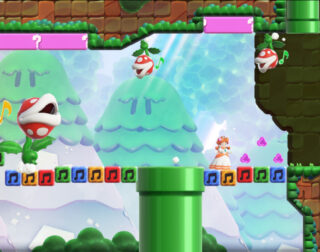Historically, disorders of executive functioning were thought to be a direct result of some form of mild brain disorder. From this perspective, activities, strategies, and training in executive skills had limited utility, minimizing the impact of classroom interventions. Over the past two decades, many studies using functional magnetic resonance imaging (fMRI) have demonstrated structural brain changes associated with training skills such as working memory, reading, and attention.
Many other studies have demonstrated the plasticity of the brain, indicating that direct training of executive skills can create new neural pathways and greater efficiencies in brain functioning. Neuroscientists such as Judy Willis, MD have designed specific brain-based classroom strategies to improve executive functions. These classroom strategies could be applied by teachers who are attuned to the needs of students with weak executive-functioning skills.
Our focus at LearningWorks for Kids is to look for engaging technologies to improve executive-functioning skills in and out of the classroom. However, many kids will need more than access to appropriate technologies to address executive dysfunctions.
For many kids with weak executive skills, the most constructive approach is when teachers play the role of the “frontal lobes” of the brain and help them to use executive skills in a step-by-step fashion. This perspective views interventions as supporting and supplementing a child’s executive-functioning skills, focusing on prompting external behaviors from a child rather than waiting for the development of brain-based capacities. Once a child (with support) has begun to apply executive skills, teachers can begin to teach skills to be used independently.
Our team at Learningworks for Kids has identified four core approaches to improving a child’s executive functioning skills that can be used by parents and teachers:
Step 1. Accommodations – Reduce expectations for the appropriate use of executive skills.
Step 2. Support – Use external prompts, reminders, and direct help in applying executive skills.
Step 3. Practice – Include activities and exercises that use executive skills.
Step 4. Mastery – Apply independent use and application of effective executive skills.
These approaches are not mutually exclusive and have a great deal of overlap. As we progress from accommodations to support to practice to mastery, we increase the child’s level of independence as well as the ability to generalize the environments in which to use the executive-functioning skills.
Specifications of our approach to help classroom teachers include:
Accommodations – Accommodations involve adjusting expectations for a child’s display and utilization of executive skills. For example, a child who displays slow processing speed or has difficulty in the executive skills of time management and sustained attention might be given a reduction in homework or an extended amount of time to complete a classroom test. An accommodation does not directly attempt to improve a child’s executive skill but instead recognizes a child’s limitation in this area. This is often a first step in assisting a child to feel more confident. In general, additional interventions are highly recommended.
Support – This strategy involves providing a child with some type of external assistance that leads to the display of an executive skill. Support is often referred to as scaffolding, where a type of structure is built around the child that assists him/her in effectively using an executive skill. A metaphor for support is the use of training wheels on a bicycle. Training wheels are raised by degrees over the course of time so that the child gradually acquires more and more skills in the balancing required in bike riding. Home- and school-based examples could include helping a child get started on a homework assignment or providing him/her with initial steps for beginning to clean his/her room.
Practice – This involves repeated rehearsal of an executive skill. Many practice opportunities require ongoing support and prior teaching/modeling of the skills. The focus in practice is inclusion of the same activity time and time again. For example, the regular repetition of organizing one’s backpack or using a classroom agenda to keep organized is likely to be helpful in a child’s organization and planning skills. Components of repeating and sustaining in practice could include making the task interesting; providing salient rewards; and giving visual reminders, recognition, and verbal praise.
Mastery – Mastery involves teaching and enabling a child to use an executive skill which he/she is then encouraged to apply across various situations. An important component of mastery is the capacity to generalize the use of an executive skill to a number of other situations. The mastery of executive skills often requires the intervention of a teacher, parent, coach, or peer tutor to assist the child in learning the skill, thinking about its use, and applying it in appropriate situations. Children master new executive skills when they “own them,” having been given sufficient instruction in their use and the motivation and awareness of how to use them. A successful strategy for teaching the application of new executive skills to younger children is to allow new privileges as a result of the skill and to provide recognition from parents, peers, and teachers for appropriate use of the skill. This is considered to be the most sophisticated strategy for improving executive skills and typically comes after accommodations, support, and practice strategies.
Featured image: Flickr user Arielle Calderon





